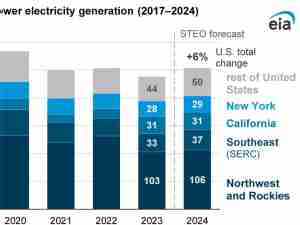Oil fell for the first time in four sessions on concern over an expansion in U.S. crude inventories and the risk of an intensifying global trade war sparked by President Donald Trump.
Futures in New York dropped as much as 1.2 percent. The American Petroleum Institute was said to report U.S. crude inventories rose by about 5.7 million barrels. Broader financial markets were also rattled after Gary Cohn said he’ll resign as economic adviser to the White House, while the Trump administration is said to be considering clamping down on Chinese investments in the U.S.
While crude has mostly stayed above $60 a barrel this year as OPEC and its allies continue to cut production to drain a global glut, investors worry record U.S. oil output could thwart the group’s efforts. Trump’s protectionist theme adds a new wave of concerns, with increasing signs of a trade war leading to turbulence in some risk assets.
“The API report on U.S. crude inventories is one major factor for oil’s decline,” Satoru Yoshida, a Tokyo-based commodity analyst at Rakuten Securities Inc., said by phone. “As President Trump sticks with an America First policy to protect domestic industries, U.S. crude production could further increase and undermine OPEC’s production cuts.”
West Texas Intermediate for April fell as much as 77 cents to $61.83 a barrel on the New York Mercantile Exchange and traded at $62.08 at 4:34 p.m. in Tokyo. The contract rose 3 cents to $62.60 on Tuesday, the highest level in a week. Total volume traded was about 26 percent above the 100-day average.
Brent for May settlement fell 0.9 percent to $65.23 a barrel on the London-based ICE Futures Europe Exchange. The contract added 0.4 percent to close at $65.79 on Tuesday. The global benchmark traded at a $3.31 premium to May WTI.
President Trump reiterated his commitment to imposing tariffs on steel and aluminum on Tuesday, saying “trade wars aren’t so bad.” Hours later, White House economic adviser Cohn, who had furiously lobbied against the tariffs, announced his resignation. The dollar and futures contracts on the S&P 500 Index fell, while the yen and Treasuries climbed.
Shortly after Cohn’s announcement, Bloomberg News reported Trump may hit at China, which has been one of his primary targets on trade since his presidential campaign. The Trump administration is considering clamping down on Chinese investments in the U.S. and imposing tariffs on a broad range of its imports to punish Beijing for its alleged theft of intellectual property, according to people familiar with the matter.
As well as Trump’s trade offensive, concerns over growing U.S. stockpiles weighed on oil futures. Analysts forecast government data will show a 3-million-barrel increase in inventories last week, according to a Bloomberg survey.
Other oil-market news:
- The Energy Information Administration boosted its global oil production estimates while lowering demand.
- The need for petroleum isn’t going away any time soon, Saudi Aramco Chief Executive Officer Amin Nasser said at the CERAWeek by IHS Markit conference on Tuesday.
- Chevron Corp. doubled its forecast for production from the Permian shale basin, adding to signs that U.S. shale growth will continue to upend global energy markets.
- Two top oil company executives are taking contrasting views on how fracking is changing the industry’s life cycle.








